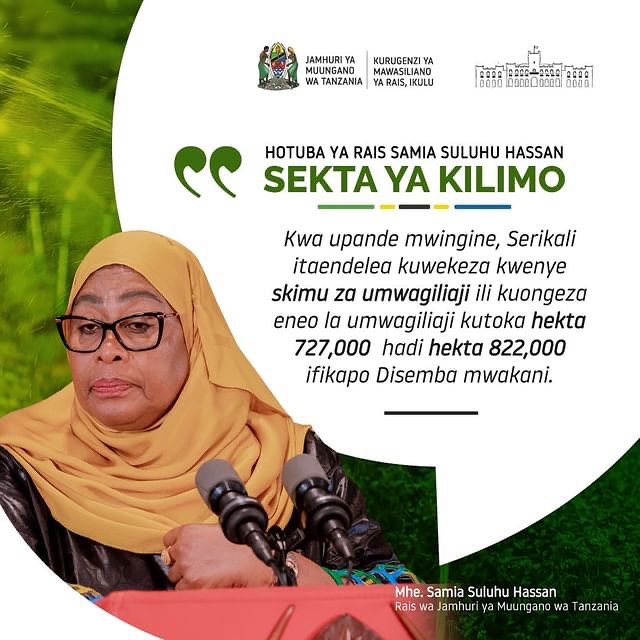President Kikwete outlined the major investment opportunities to include agriculture, agribusiness, manufacturing (extractive industry), infrastructure, tourism and private public partnership
African investment Forum 2011
Programme
Presidential Country Roundtables with Business Leaders-Tanzania
The Tanzanian interactive session, which opened with the theme of Unleashing the Potentials of Agriculture in East Africa, was chaired by Mr. Sakum Shamte, the Chairman Agricultural Council of Tanzania. The session looked at the investment opportunities not only in Tanzania Mainland, but also in the Aisles.
After outlining the major investment opportunities in Tanzania,Mr Shamte handed over the session to H.E J.K.Mrisho Kikwete to hear from the people—the a heavily packed and attentive audience. Concurring with Mr. Shamte, President Kikwete outlined the major investment opportunities to include agriculture, agribusiness, manufacturing (extractive industry), infrastructure, tourism and private public partnership.
The President highlighted the fact that Tanzania has plenty of natural resources, including land, but it still remains untapped.
“Tanzania has plenty of land but 1 percent has been utilized for agricultural production. The climate is good, with adequate water, seasonal rivers, that if we utilized them we they would be instrumental in promoting agriculture. Even the seasonal rivers, if you dam them, there would be constant water,” he said.
In a bid to make Tanzania an investment destination, he outlined the following needs:
- Need to develop the value chain so that we export processed goods instead of raw ones;
- Need to invest in farming ,agribusiness,
- Supply of farm inputs—crop marketing generally for our crops such as sorghum, millet, cotton,
- Need to strengthen the value chain management
Ole-Naiko–TIC
- Facilitated on role of the TIC which performs some of the functions that include facilitating investment in Tanzania as a one stop centre for investment, whereby instead of one investor going to several government departments, the services can easily be obtained at the TIC.
- Tanzania has become an investment destination in the field of agriculture, tourism, manufacturing, Private Public Partnerships (PPP), and other emerging areas like as health.
- There is an improvement in local investment. It now stands at 45 percent as contrasted to previous years. Though there are still challenges in order to make this percentage to go up.
- Since investment is a process, some of these challenges are being solved one by one.
- Strengthening of regional administration by forming the Ministry for Regional Administration.
- Kilimo Kwanza is going to fill the vacuum that was created by the now defunct co-operatives.
Gaps in some of the Investment Areas:
- Tourism
- With regards to tourism, there are ample opportunities in the catering industry, for example, if Tanzania was to host a conference of more than 5000 delegates, the hotel facilities would not be enough. There is need to build enough hotels, invest in training tour guides, tourism transport.
Infrastructure—power
- We need to develop alternative energy sources, such as gas and other sources of electricity, to ensure that our people to use natural gas instead of charcoal. Only 4 percent of the general population has access to electricity.
Roads
- We are in the process of inviting the Private Sector to invest in the roads subsector;
Strategic Location/Geography
- Tanzania borders Rwanda, Burundi, Uganda, Zambia, Malawi, and Mozambique, has a lot water ways—from the fresh water lakes to the ocean. In this line there is therefore the need to invest in freight services—the business of clearing and forwarding.
- There is the manufacturing sector. We have not done enough. Instead of travelling to Guangzhou in China most of the time, we could establish some industries that produce the same kind of goods that these people go to buy in China.
- In a nutshell, there a lot of ample opportunities in whatever one choose to do.
ZANZIBAR INVESTMENT PROMOTION AUTHORITY
- Major investment areas being: Tourism and Spices
- Has potential for fishing investment, from North of Pemba to South of Zanzibar.
- Other investment opportunity include the sea weed farming
- Need for value in addition Cloves—because one unprocessed cloves sell at a very lower price as compared to processed cloves.
- Zanzibar has designated its special economic zones (EEZ), on being in Pemba and another in Zanzibar.
Opportunities
- So many opportunities, in tours operations, hospitality management, tourism supporting services.
- Legal friendly atmosphere
- Political will.
- See Tanzania Investment Guide of 2008 and beyond lists all investment opportunities.
Question/Commentary Sessions by participants
- As investors, we have always had the problem of visas with business people who want to work on short assignments. How quickly can that be expedited? (Mr Zakhem, Construction Industry)
Answer:
- We are aware of the situation and we are trying to work on it. After terrorist activities, especially since the 9/11th and 20/2010, we have been cautious.
- What steps are being done to ensure that the land laws are amended in order to allow other East Africans to buy land? (Kenyan Investor)
- Answer:
We are now working on the East African Common Market. At first we had agreed that land shall remain a prerogative of the member states, eventually land shall be freely available. Just like in labour, where member states agreed that there be job services that are freely allowable. We have to move by stages. We don’t want to rush because we may tip over, and have still birth. We need to build a consensus to avoid past mistakes that led to the collapse of the former East African Community.
- What is being done to make Kilimo Kwanza more relevant and practical rather than mere statements (just like the previous initiatives that have died without bearing any fruits)? Honest Prosper Ngowi (Mzumbe University)
Answer:
I am not an investor. I am government. We need to move agriculture from the peasant level, with no dependency on seasonal rains; we are encouraging irrigated agriculture. Agriculture with high-yielding and reliable seeds. We are currently importing 75 percent of the seeds in this country, where there is arability of fertilizers, subsidies for fertilizers and seeds, pesticides, and above all skilled farmers, and that we keep carrying out training of farmers and other agricultural extension officers. There is also need to resume crop-marketing that used to be there but collapsed due to the World Bank’s Structural Adjustment Programmes (SAPs), something that later resulted into cartels. We also need to promote commodity exchange and ensure that farmers get the value of their efforts instead of being undercut by some individuals. This we did and were successful with cashew nuts.
Key Point:
- The President called for need to modernize agriculture–changing the current subsistence agriculture to doing farming as a business.
In order to make Kilimo Kwanza a reality there is need to:
- Modernize farming from peasant to commercial large scale farming
- Need for agricultural inputs
- Agro-processing some of our raw crops instead of selling cheaply raw.
To achieve the above, we need to remove major constraints, deal with real markets and improve the rural infrastructure, and that is why rural roads are part of the Kilimo Kwanza.
NB: Key Point:
- The President called for the need to modernize agriculture- by changing the current subsistence agriculture to doing farming as a business.
What can be done to expedite the EIA time that has normally limited projects from being implemented in time? (Mr. Yahya, investor)
We have heard you. We just need to call upon NEMC to do it fast and better.
- How are you helping investors in Tanzania? (Investor from Karatu)
There was a time when we issued the rescue packages; these were not in the form of money, but rather bank loan guarantees. So that in view of the global economic crisis, the banks were not to harass the borrowers for two years. These rescue economic packages were only meant for those already in business not those ones starting. But we promise to get more
- How far has Tanzania gone in processing her own Import Export Code, and what steps are being put in place to ensure that Dar es Salaam’s congestion is reduced? (Contribution by Mr. Mwenye from TPSF)
TPSF is working on this and very soon Tanzanians will be able to export without having to use the codes from Kenya and South Africa. It is important to observe some of these international requirements before one can export to outside countries. People need to be educated.
- Can then NSSF funds be used in financing the local investors? (Dr. Mbaga)
If the NSSB board decides, that is fine. This is an economic issue that needs to be tackled economically, not politically. There is no need for political interference, and no minister should also go behind my back on that.
Key Points in the whole Country Roundtables with Business Leaders in Tanzania
- Tanzania has vast, and yet untapped, investment opportunities, in agriculture, agribusiness, manufacturing (extractive industry), infrastructure, tourism and private public partnership;
- For the rural population – more than the 85% of the total population – agriculture is the main way of making a living either as pure subsistence farmers or with a little semi-commercial farming. In this way, if Kilimo Kwanza is the savior if properly implemented.
- To make agriculture more meaningful, there is an urgent need to promote the concept of value chain management in the form of agro-processing.
- Infrastructural development and modernization is key to Kilimo Kwanza.
- Apart from agriculture, tourism is another serious area for potential investors.
- Private Public Partnership is vey key in exploiting the investment opportunities.
- There is a need to make the investment climate more conducive by removing the red tapes and bureaucratic tendencies that act as serious obstacles to investors.
- Land is still a delicate issue even under the East African Common Market, which needs to be handled gradually. No need to rush.


